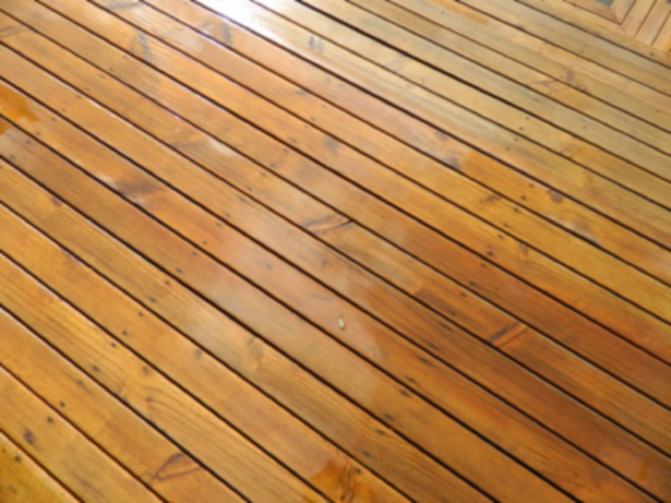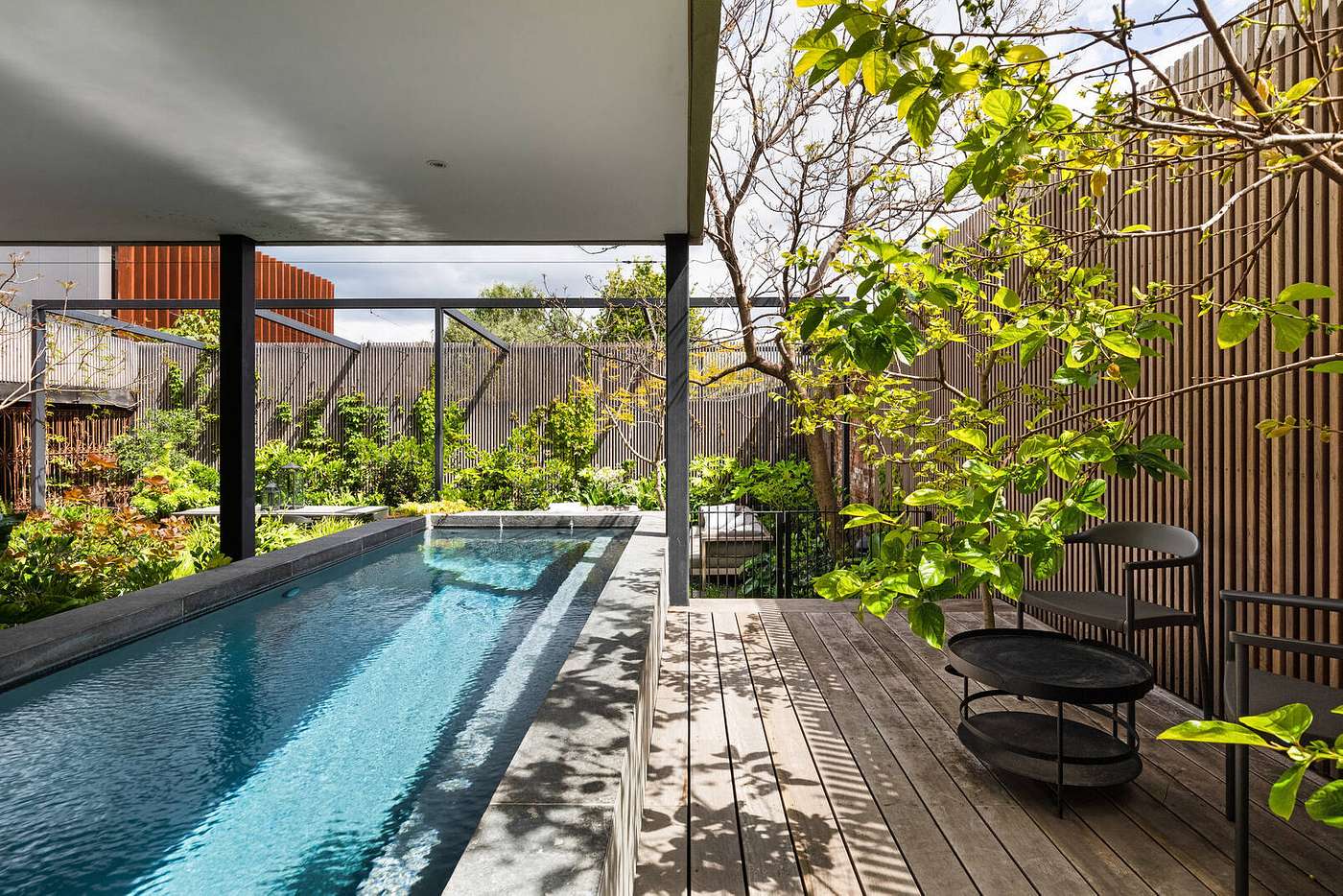Visual appeal is the main benefit of building a deck with timber rather than composite material. Although composite can replicate the look of wood, it does not compare to the pleasing natural aesthetic of a timber deck.
Timber decking requires a regular maintenance schedule to keep it looking its best. An essential stage of any maintenance program should be staining or oiling.
When deciding whether to stain or oil your timber deck, many deck owners are simply at a loss because they don’t know enough to make an informed decision. Here is some advice to help you decide which option is right for you and your outdoor area.
 17 Driver Street, Portsea, VIC.
17 Driver Street, Portsea, VIC.
Topics in this article:
The case for oiling the deck
What differentiates oil from stain is that it’s a preventative measure. Oil penetrates deep into the pores of the wood, protecting it from water damage. Some oils are manufactured with UV blockers, which help reduce the damage from the harmful rays of the sun. They are often also resistant to mould and fungus.
There are two types of decking oils available, water based and non-water based. Choosing the best decking oil can be the difference between an average looking or mint condition decking. It’s really that important.
Decking oils are generally not designed to change the colour of the wood, but some (particularly non-water based oils) can darken the wood. A natural pigment or light oak oil is recommended for dark-coloured timbers like Merbau to prevent it turning even darker.
The case for staining the deck
Staining your deck can enhance the appearance of the timber by changing the existing colour. Doing this revitalises the deck and helps highlight the natural grain.
Staining can also help preserve the wood if the stain is carried in an oil. If it is a water based stain it will only provide UV protection.
How long before you can stain a deck?
If the wood you are using has been pressure treated, it is often delivered wet with preservative. For the stain to properly absorb, the wood needs time to dry out.
How long you should wait will vary on the climate and weather conditions in your area and whether the deck is in the sun or shade, but a rough estimate is between 4-8 weeks after installation.
How often should you oil or stain?
Oils– Depending on whether you’re using a water based or non-water based oil, you will need to apply it every six to 18 months.
Stains– Home improvement site Homeguides say that you will need to re-stain the wood once a year if you are using a transparent stain, but will only need to do it every 5 years if you’re using a solid pigmented stain. However, excess amounts of weathering or usage will cause the stain to wear out faster. Meaning shorter time between treatments.
Decking oil vs. stain
Whether you should oil or stain will come down to what you want from your deck. A stain will improve the appearance of the deck, but oil will better help preserve its condition.
I think oil is preferable because timber decking is such a significant investment that you will want to get as much life out of it before you need to replace it. Also preserving the condition of the wood will help maintain its appearance.
One of the major drawbacks of oil is that the wood may turn a silver colour due to exposure to the sun. However, you can bring back the natural look of the wood by using a pressure washer or choosing a decking oil with UV inhibitors.
Before you start
Regardless of whether you decide to oil or stain, you should ensure the deck is clean before you start. Take everything off the deck, like furniture, plants and decorations. If you cannot do this, neatly place the items in a corner.
After sweeping, use a safe product to clean the deck. You could also use a pressure washer.
Follow instructions and retailer suggestions
Decking oil and stain will come with instructions on the tin. It will tell you how to apply it, how long it will take to dry and when you should apply a second coat. It’s always prudent to test it in an inconspicuous area before putting on the first coat to make sure it doesn’t dramatically change the colour of the wood.
It’s also important to follow the retailer suggestions about which products will be safe for your particular timber species.
If you are still unsure whether to use a decking oil or stain, your timber supplier or a hardware specialist will be able to give you a recommendation.
For more DIY decking improvement tips have a read of our step by step guide to decking restoration and composite vs timber decking.






Which one of these Stain or Oiling my deck will be easier for me to keep clean we had a Water Based Solid Stain before and I couldn’t even get the dog paw prints off while using a soapy brush or pressure washing it off please help make the right decision, Oil or Stain ? Thanks